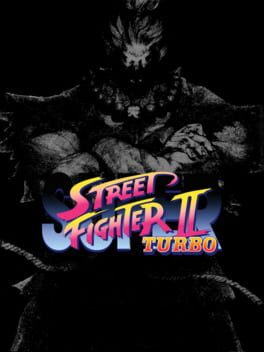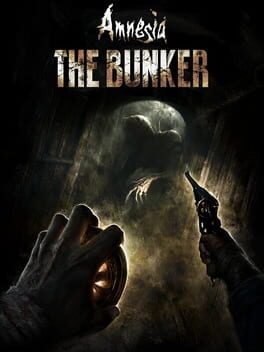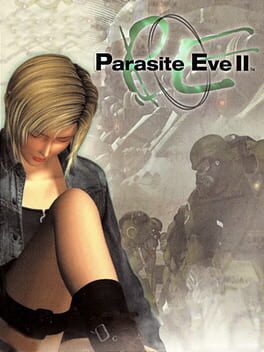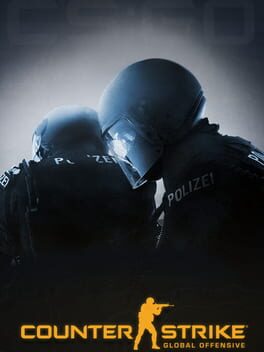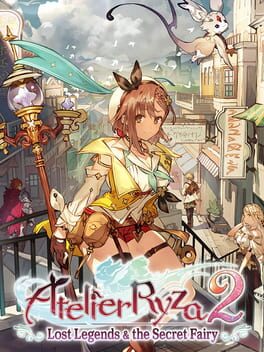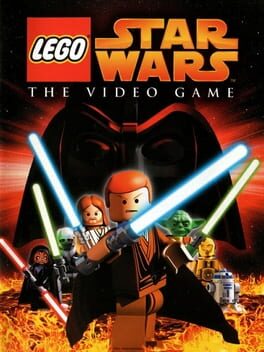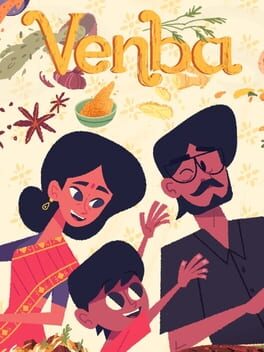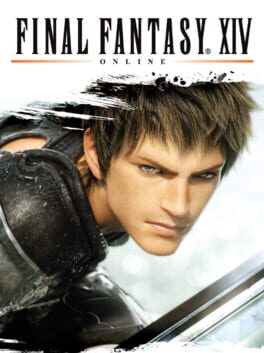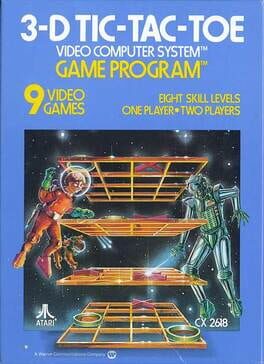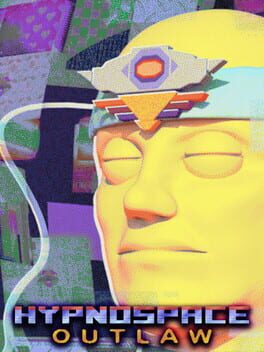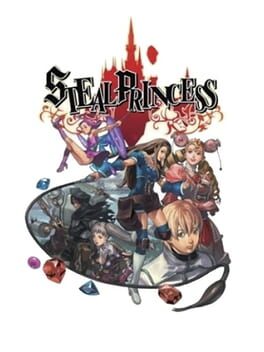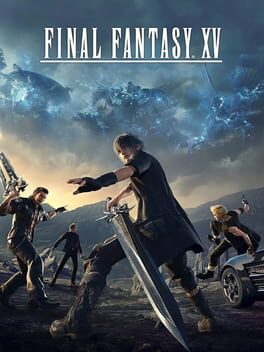SwitSwat
BACKER
126 Reviews liked by SwitSwat
Yume Nikki
2004
This is one of the those games where if you spend enough time online you eventually be introduced to it. As an elementary schooler I was first introduced to this game through an internet personality showcasing the infamous Uboa. Though the experience was a bit traumatizing when I was younger it also greatly fascinated me and looking back this may have been the start of my love for the weird offshoots in the gaming industry. When the game was eventually ported to Steam I finally got to indulge myself in the oddity that fascinated me so many years ago. I then proceeded to play it for an hour and then didn't pick it up again until three years later.
Yume Nikki is a bit of a strange game to go back to. The basic gameplay is often incredibly boring with limited actions and decisions to make to progress in the game. Since the game lacks and sort of direction, without a guide, you may spend hours trying to find some of the last items you need to complete the game. What I didn't really get when I first played it is that all of these decisions were intentional in creating one of the moodiest and offbeat walking sims I have ever played and there in lies the core appeal of the game. The most rewarding experiences I had while playing was seeing what absolutely bizarre areas I would find myself in. The game does an incredible job of mixing lighthearted goofiness with abject terror all while having an incredibly somber tone to the whole experience. The community that has sprung up around deciphering every inch of this game is endlessly fascinating and the lack of info surrounding the creation of it adds to its mystique.
I think what Yume Nikki excels at the most, besides everything I previously mentioned, is being the groundwork that so many RPG maker horror games would be based off of. It's an incredibly important part of video game history and is one that is seldom talked about outside of online spaces and I think that is a real shame. I have my qualms with the game sure, as previously mentioned it can be a bit of a slog to traverse and its cryptic nature can sometimes end up hurting the experience. BUT, with the price of entry being only your time, I think its a game that everyone should try at least once just to experience the odd little game that influenced so much in the indie space. I don't know I could say that I really like this game but I can say that all of its quirks and oddities will be lovingly stored in my thoughts for many years to come.
Yume Nikki is a bit of a strange game to go back to. The basic gameplay is often incredibly boring with limited actions and decisions to make to progress in the game. Since the game lacks and sort of direction, without a guide, you may spend hours trying to find some of the last items you need to complete the game. What I didn't really get when I first played it is that all of these decisions were intentional in creating one of the moodiest and offbeat walking sims I have ever played and there in lies the core appeal of the game. The most rewarding experiences I had while playing was seeing what absolutely bizarre areas I would find myself in. The game does an incredible job of mixing lighthearted goofiness with abject terror all while having an incredibly somber tone to the whole experience. The community that has sprung up around deciphering every inch of this game is endlessly fascinating and the lack of info surrounding the creation of it adds to its mystique.
I think what Yume Nikki excels at the most, besides everything I previously mentioned, is being the groundwork that so many RPG maker horror games would be based off of. It's an incredibly important part of video game history and is one that is seldom talked about outside of online spaces and I think that is a real shame. I have my qualms with the game sure, as previously mentioned it can be a bit of a slog to traverse and its cryptic nature can sometimes end up hurting the experience. BUT, with the price of entry being only your time, I think its a game that everyone should try at least once just to experience the odd little game that influenced so much in the indie space. I don't know I could say that I really like this game but I can say that all of its quirks and oddities will be lovingly stored in my thoughts for many years to come.
Amnesia: The Bunker
2023
I am really upset that did not end up clicking with this game since I really really wanted too. I want to get out of the way that most of my complaints with this game stem from its poor performance. The simple act of booting up the game took upwards of three minutes and loading times in general were a pain to sit through especially when going to new areas.
To actually talk about the game outside of the performance issues, I think the concept of the game is brilliant. Exploring and underground WW1 bunker while an unkillable beast hunts you down is a premise I find incredibly compelling especially since there are not that many WW1 horror games. The aesthetic of the game is fantastic with gameplay of exploring a pitch dark bunker being unnerving and pretty unique. I even love the idea that you have a limited resource in the form of fuel which can be used to light up the bunker and without it you are operating in pure darkness.
Now for some problems I have with how the game is structured. One of the first lines I saw when booting up the game was something along the lines of "If you can think it you can probably do it". With this line in my head, I was disappointed with limited number of ways you can interact with the systems in this game. I never really felt clever engaging with the crafting or traps to help slow down the monster as it all seemed pretty basic. Given the short length of the game, I felt the developers could have built on the idea that you are using absolutely everything at your disposal in order to slow this monster down. I really wanted more creative ways to deal with the monster as for the most part, if I didn't have a good item on hand I was left hiding under a table until the monster left which is what I hate doing the most in stealth games.
What ultimately got me to stop playing was a nasty bug that made the game not save my progress which resulted in me losing 40 minutes of progress. Ill admit, the xbox I played this game on is pretty old but to lose that much progress killed my enthusiasm for the game. It didn't help that when I tried to replay the parts I missed the game crashed and I lost progress again.
I am still giving the game a 6 despite my problems with it because I think this is still a good game just not one that fully utilizes how intriguing its concept really is. I really want to give it another go at some point, preferably on a system that can support it more and won't lead me to losing progress. I would also still recommend it for the premise alone.
To actually talk about the game outside of the performance issues, I think the concept of the game is brilliant. Exploring and underground WW1 bunker while an unkillable beast hunts you down is a premise I find incredibly compelling especially since there are not that many WW1 horror games. The aesthetic of the game is fantastic with gameplay of exploring a pitch dark bunker being unnerving and pretty unique. I even love the idea that you have a limited resource in the form of fuel which can be used to light up the bunker and without it you are operating in pure darkness.
Now for some problems I have with how the game is structured. One of the first lines I saw when booting up the game was something along the lines of "If you can think it you can probably do it". With this line in my head, I was disappointed with limited number of ways you can interact with the systems in this game. I never really felt clever engaging with the crafting or traps to help slow down the monster as it all seemed pretty basic. Given the short length of the game, I felt the developers could have built on the idea that you are using absolutely everything at your disposal in order to slow this monster down. I really wanted more creative ways to deal with the monster as for the most part, if I didn't have a good item on hand I was left hiding under a table until the monster left which is what I hate doing the most in stealth games.
What ultimately got me to stop playing was a nasty bug that made the game not save my progress which resulted in me losing 40 minutes of progress. Ill admit, the xbox I played this game on is pretty old but to lose that much progress killed my enthusiasm for the game. It didn't help that when I tried to replay the parts I missed the game crashed and I lost progress again.
I am still giving the game a 6 despite my problems with it because I think this is still a good game just not one that fully utilizes how intriguing its concept really is. I really want to give it another go at some point, preferably on a system that can support it more and won't lead me to losing progress. I would also still recommend it for the premise alone.
Parasite Eve II
1999
The original Parasite Eve was a very unique game there is no doubt. It showcased a really interesting mix of sci fi survival horror and RPG elements that was groundbreaking for the time and has seldom been replicated since. Throw in some amazing horror scenes and a fantastic soundtrack and you have yourself a classic. So how does the sequel stack up?
To sum it up, it falls short which is disappointing to see since you can see in the game where they could have changed things for the better.
Probably the biggest change to the game is the combat which is frenetic compared to the first games more calculated combat. This actually didn't bother me that much since as much as I like the first game its pacing was a bit of a slog. The combat in this game leans itself to faster encounters that lessens the horror a little bit but generates a more entertaining experience.
The downside to this change in the gameplay is the removal of the weapon crafting system of the first game. What is the point of making your gameplay more combat focused if you remove one of the most interesting aspects of the first games combat. Gone are the days of building a extremely powerful gun, instead you are stuck with the six or so guns they give which severely limits player expression. To make up for this, Mitochondria powers have been reworked so you can spec how you want. This is a fine addition as it cuts back on grinding a little bit and gives incentive for future playthroughs.
I am going to quickly list some other complaints I had with the game.
The requirements for the good ending were not clear at all and I wish there was better signposting for that stuff.
Key items are rarely highlighted so sometimes you will just be clicking on random objects in the environment until you find what you want.
You spend about half of this game in a lab environment which sucks since I think lived in environments such as Dryfield are vastly more interesting to explore and was ultimately my favorite part of the game
I've mostly been saying negative stuff but I actually did like this game I was just disappointed that it ended up being a slog in parts and that I could where it could have done better. I really enjoyed some of the boss fights, especially the final boss and I still think the soundtrack was pretty good just maybe a little bit of a step down. Keep in mind that I played this on an emulator so I was able to reduce on time wasted from dying or other moments. If I had played this on original hardware I cant confidently say I would have given it the same score.
I really hope this franchise sees some sort of revival at some point since it is really fascinating. I really want to try Third Birthday at some point despite it being the reason we may never see this franchise again
To sum it up, it falls short which is disappointing to see since you can see in the game where they could have changed things for the better.
Probably the biggest change to the game is the combat which is frenetic compared to the first games more calculated combat. This actually didn't bother me that much since as much as I like the first game its pacing was a bit of a slog. The combat in this game leans itself to faster encounters that lessens the horror a little bit but generates a more entertaining experience.
The downside to this change in the gameplay is the removal of the weapon crafting system of the first game. What is the point of making your gameplay more combat focused if you remove one of the most interesting aspects of the first games combat. Gone are the days of building a extremely powerful gun, instead you are stuck with the six or so guns they give which severely limits player expression. To make up for this, Mitochondria powers have been reworked so you can spec how you want. This is a fine addition as it cuts back on grinding a little bit and gives incentive for future playthroughs.
I am going to quickly list some other complaints I had with the game.
The requirements for the good ending were not clear at all and I wish there was better signposting for that stuff.
Key items are rarely highlighted so sometimes you will just be clicking on random objects in the environment until you find what you want.
You spend about half of this game in a lab environment which sucks since I think lived in environments such as Dryfield are vastly more interesting to explore and was ultimately my favorite part of the game
I've mostly been saying negative stuff but I actually did like this game I was just disappointed that it ended up being a slog in parts and that I could where it could have done better. I really enjoyed some of the boss fights, especially the final boss and I still think the soundtrack was pretty good just maybe a little bit of a step down. Keep in mind that I played this on an emulator so I was able to reduce on time wasted from dying or other moments. If I had played this on original hardware I cant confidently say I would have given it the same score.
I really hope this franchise sees some sort of revival at some point since it is really fascinating. I really want to try Third Birthday at some point despite it being the reason we may never see this franchise again
Just like that, CSGO is no more. There was no celebration of it's tenure, of the joy and tears that the game brought to millions of players. Instead it went quietly into the night. With servers being taken offline as players finished their matches for unknowingly the last time.
By the evening of September 27, 2023. Counter Strike Global Offensive ceased to exist. It's store page removed from Steam, replaced with Counter Strike 2. Every other Counter Strike game is playable and accessible through community servers, and while CS2 is really just a port of CSGO, it seems disrespectful to completely remove one of Valve's most successful games entirely from its store. We would not be taking about CS2 if CSGO did not succeed.
11 years ago, CSGO was released in a broken, nearly unplayable mess. But fans stuck to the game, waiting patiently with each update for the game to improve. I was there for it all. The infamous Deagle update, Aztec existing, the skin betting scandal, and watching Skadoodle raise that Major trophy. Watching CSGO grow from a niche FPS, to the juggernaut it is now known as was something special to watch and be a part of.
I've grown with this series. Starting in 2011 on Counter Strike: Source, and quickly making the jump to CSGO the following year. I've made some unforgettable friends who have all mostly moved on to other things in life, but those memories will always sit with me. By the time another Counter Strike is released I will likely be in my 40s, and this franchise will have been a part of nearly half my life. By this point, I don't know if there will be another piece of media that will devote as much of my time as CS has.
So to anyone that hopped online, and maybe we shared a game together. Thanks. It's been a great ride.
By the evening of September 27, 2023. Counter Strike Global Offensive ceased to exist. It's store page removed from Steam, replaced with Counter Strike 2. Every other Counter Strike game is playable and accessible through community servers, and while CS2 is really just a port of CSGO, it seems disrespectful to completely remove one of Valve's most successful games entirely from its store. We would not be taking about CS2 if CSGO did not succeed.
11 years ago, CSGO was released in a broken, nearly unplayable mess. But fans stuck to the game, waiting patiently with each update for the game to improve. I was there for it all. The infamous Deagle update, Aztec existing, the skin betting scandal, and watching Skadoodle raise that Major trophy. Watching CSGO grow from a niche FPS, to the juggernaut it is now known as was something special to watch and be a part of.
I've grown with this series. Starting in 2011 on Counter Strike: Source, and quickly making the jump to CSGO the following year. I've made some unforgettable friends who have all mostly moved on to other things in life, but those memories will always sit with me. By the time another Counter Strike is released I will likely be in my 40s, and this franchise will have been a part of nearly half my life. By this point, I don't know if there will be another piece of media that will devote as much of my time as CS has.
So to anyone that hopped online, and maybe we shared a game together. Thanks. It's been a great ride.
Atelier Ryza 2, as a sequel, is perfect. It builds upon everything established in the previous game, while still further improving them, and removing one or two aspects that were unnecessary or felt tacked-on. If you want to know the specifics about the improvements, please read further. If not, then stop here and go play Ryza 2.
1) Presentation
All the excellent presentational aspects of the previous game are all here in full force once again. The visuals, music, and sound effects are all fantastic; I even dare say the OST this time around is better too. I don't really know what else I can say. Go look at some PC (or PS5) footage of this game running on max settings, it is utterly GORGEOUS. And even on the Switch, (which was the system I played on) the visual style still comes through very well despite how much the system holds things back.
2) Story & Characters
The main plot this time around didn't grip me quite like the first game's plot, but it was still pretty good. Going around each of the different ruins and uncovering the mystery of what happened so many centuries ago by collecting memory fragments and putting things together was quite enjoyable. I enjoyed this aspect a lot and it gave a lot more context to certain locations in each of the ruins.
3) The Characters
I don't really have many details to go into for this section. The character writing & cast interactions, as well as the NPC sidequests, feel just as good (if not even better) than before. The returning characters are back and better than ever, still growing and learning, as they're no longer teenagers but are now young adults.
4) Combat
One of the biggest improvements is the combat system. Action Orders are simpler to execute, are always within your currently-controlled characters' means, and are very snappy. The general flow of combat feels much faster as well and there's less downtime. The way Core Items are utilized are much-less limiting than before, as Core Charges accrue during each individual battle and aren't tied to your Core Charges in the field. It's all very engaging and never not-fun. The new Core Drives that you can unlock from the Skill Tree are also excellent and fun to use, and encourage you to actually give other party members who aren't Ryza items to use, though I still didn't use many of the other Core Drives besides the Four Star Aurora. I don't know just how much more they can improve the battle system from here, but I can't wait to see what they do next with it.
5) Alchemy
I'm having a hard time coming up with a way to describe how they improved the Alchemy system. There's a new Skill Tree where you can unlock necessary recipes, gain some certain abilities (like Core Drives), and even increase your Item Rebuild level or increase the total quantity of items you can add to a given recipe. This system seems a bit like a limitation early on, but if you're alchemizing and 100%-ing the Ruin Memories like you're intended to, you'll have more SP than you know what to do with about halfway into the game.
One small addition that was actually pretty big was the new inclusion of Essences. If you refine the collected quantity of an element (which you naturally collect from battles) you can reduce it into an "Essence" and use that essence in a recipe node to take that node's given ability or trait to a higher level. This lets you take Recipes that only seem to give the "M" or Medium version of an item's trait, to take it to the L or even XL version of that trait.
One thing they DID remove was the Travel Bottle, which I'm glad for. The Travel Bottle felt really tacked on in the first game, and I never had any real need of it, and the few times I did made it feel like a chore.
6) Exploration
All the new locales to explore feel very unique and interesting, I was always anticipating what would be beyond the next screen transition. There's also a sort of Indiana Jones magic-whip item you get early on for exploring ruins. It's a bit of a gimmick, but it doesn't feel bad, and you have to use essences to refine and fully upgrade it to access some particular swing spots. The underwater sections are neat but there aren't as many as I thought there would be. I had imagined originally that there would be an entire set of sunken ruins to explore, but you just swim through all these water areas, sometimes gathering stuff from the bottom of the lake or underwater cave you're swimming through, and up through to the other side.
A sunken pirate ship and fully-underwater ruins (like some kind of Atlantis) would've been REALLY cool to explore, so I hope we see something like that in Ryza 3.
7) Gathering
The gathering works, well, almost exactly the same as before. There is the addition of having a Spirit Beast to ride around on, summoned by clicking the Right Analog stick once you get the Spirit Beast Whistle (part of story progression). While you're mounted, your movement speed is increased and any enemies who see you atop your noble (adorable) steed will run away in terror. While mounted, you can gather items from spots that don't require any gathering tools. You can also still use Photo Mode while you're mounted!
8) Wrap-Up
Ryza 2 is, as I said at the start, perfect as a sequel. It successfully does everything it sets out to do. I can't really think of any particular moments I was disappointed or unhappy with this game. It's just utterly fantastic. If you played Ryza 1 and somehow haven't already gotten around to this, you'll regret having not played Ryza 2 sooner.
1) Presentation
All the excellent presentational aspects of the previous game are all here in full force once again. The visuals, music, and sound effects are all fantastic; I even dare say the OST this time around is better too. I don't really know what else I can say. Go look at some PC (or PS5) footage of this game running on max settings, it is utterly GORGEOUS. And even on the Switch, (which was the system I played on) the visual style still comes through very well despite how much the system holds things back.
2) Story & Characters
The main plot this time around didn't grip me quite like the first game's plot, but it was still pretty good. Going around each of the different ruins and uncovering the mystery of what happened so many centuries ago by collecting memory fragments and putting things together was quite enjoyable. I enjoyed this aspect a lot and it gave a lot more context to certain locations in each of the ruins.
3) The Characters
I don't really have many details to go into for this section. The character writing & cast interactions, as well as the NPC sidequests, feel just as good (if not even better) than before. The returning characters are back and better than ever, still growing and learning, as they're no longer teenagers but are now young adults.
4) Combat
One of the biggest improvements is the combat system. Action Orders are simpler to execute, are always within your currently-controlled characters' means, and are very snappy. The general flow of combat feels much faster as well and there's less downtime. The way Core Items are utilized are much-less limiting than before, as Core Charges accrue during each individual battle and aren't tied to your Core Charges in the field. It's all very engaging and never not-fun. The new Core Drives that you can unlock from the Skill Tree are also excellent and fun to use, and encourage you to actually give other party members who aren't Ryza items to use, though I still didn't use many of the other Core Drives besides the Four Star Aurora. I don't know just how much more they can improve the battle system from here, but I can't wait to see what they do next with it.
5) Alchemy
I'm having a hard time coming up with a way to describe how they improved the Alchemy system. There's a new Skill Tree where you can unlock necessary recipes, gain some certain abilities (like Core Drives), and even increase your Item Rebuild level or increase the total quantity of items you can add to a given recipe. This system seems a bit like a limitation early on, but if you're alchemizing and 100%-ing the Ruin Memories like you're intended to, you'll have more SP than you know what to do with about halfway into the game.
One small addition that was actually pretty big was the new inclusion of Essences. If you refine the collected quantity of an element (which you naturally collect from battles) you can reduce it into an "Essence" and use that essence in a recipe node to take that node's given ability or trait to a higher level. This lets you take Recipes that only seem to give the "M" or Medium version of an item's trait, to take it to the L or even XL version of that trait.
One thing they DID remove was the Travel Bottle, which I'm glad for. The Travel Bottle felt really tacked on in the first game, and I never had any real need of it, and the few times I did made it feel like a chore.
6) Exploration
All the new locales to explore feel very unique and interesting, I was always anticipating what would be beyond the next screen transition. There's also a sort of Indiana Jones magic-whip item you get early on for exploring ruins. It's a bit of a gimmick, but it doesn't feel bad, and you have to use essences to refine and fully upgrade it to access some particular swing spots. The underwater sections are neat but there aren't as many as I thought there would be. I had imagined originally that there would be an entire set of sunken ruins to explore, but you just swim through all these water areas, sometimes gathering stuff from the bottom of the lake or underwater cave you're swimming through, and up through to the other side.
A sunken pirate ship and fully-underwater ruins (like some kind of Atlantis) would've been REALLY cool to explore, so I hope we see something like that in Ryza 3.
7) Gathering
The gathering works, well, almost exactly the same as before. There is the addition of having a Spirit Beast to ride around on, summoned by clicking the Right Analog stick once you get the Spirit Beast Whistle (part of story progression). While you're mounted, your movement speed is increased and any enemies who see you atop your noble (adorable) steed will run away in terror. While mounted, you can gather items from spots that don't require any gathering tools. You can also still use Photo Mode while you're mounted!
8) Wrap-Up
Ryza 2 is, as I said at the start, perfect as a sequel. It successfully does everything it sets out to do. I can't really think of any particular moments I was disappointed or unhappy with this game. It's just utterly fantastic. If you played Ryza 1 and somehow haven't already gotten around to this, you'll regret having not played Ryza 2 sooner.
I am not going to try and pretend that this review won't be biased in the slightest. The original Lego Star Wars was one of the first games I had ever played and a game I still hold dearly to this day. Going back to play it with my brother again to me back to all the simple fun the game had to offer. As a little kid I loved slowly going through all the levels and uncovering every little secret the game had to offer. I would be contempt even just running around the main hub and swapping between all the characters I unlocked through cheats or playing tag with the Gonk droid.
Actually going back to play the game was still a blast. Yes it is an extremely simple game tailored to small children but I have yet to find someone who doesn't get a kick out of it. Being the first Travelers Tales Lego game a lot of the essential quality of life improvements are missing. No proper spiltscreen exists unless you play the complete saga version which I would recommend over the original in a heartbeat. What was really interesting to me was how tame the comedy elements were. Late Lego Games go so overboard with their jokes that its interesting to see what constitutes for a joke in this game could be just be someone shrugging in a cutscene or hiding behind cover.
Though it is very simplistic, this game I feel is kind of timeless with its charm. It's a game I could easily see kids enjoying today still. At the very least it is what got me into Star Wars which nowadays could very be a bad thing. Regardless, those old memories of me playing this game will hopefully stick with me for a long time.
Actually going back to play the game was still a blast. Yes it is an extremely simple game tailored to small children but I have yet to find someone who doesn't get a kick out of it. Being the first Travelers Tales Lego game a lot of the essential quality of life improvements are missing. No proper spiltscreen exists unless you play the complete saga version which I would recommend over the original in a heartbeat. What was really interesting to me was how tame the comedy elements were. Late Lego Games go so overboard with their jokes that its interesting to see what constitutes for a joke in this game could be just be someone shrugging in a cutscene or hiding behind cover.
Though it is very simplistic, this game I feel is kind of timeless with its charm. It's a game I could easily see kids enjoying today still. At the very least it is what got me into Star Wars which nowadays could very be a bad thing. Regardless, those old memories of me playing this game will hopefully stick with me for a long time.
Venba
2023
Since I had gamepass I thought I would give this game a shot since I knew it was so short. Little did I know I would be playing one of the most wholesome and sad games I've played all year. For being such a short experience the game is able to cover so many topics in a way that are subtle and very powerful. Themes of becoming disillusioned with ones culture and finding a home in a foreign land all feel very lived in. I will not begin to say I relate to these experiences given that I am a white boy from the Midwest.
Even given my background I still felt extremally sympathetic to these struggles. The unconditional love on display really reminded me about all my parents have done for me. I'm just gonna come out and say it, this game almost left me crying like a baby. It's such a short sweet experience I just can't recommend it enough. Even if the gameplay is nothing super special, if a game can make me cry you bet I am gonna give it a high recommendation.
Even given my background I still felt extremally sympathetic to these struggles. The unconditional love on display really reminded me about all my parents have done for me. I'm just gonna come out and say it, this game almost left me crying like a baby. It's such a short sweet experience I just can't recommend it enough. Even if the gameplay is nothing super special, if a game can make me cry you bet I am gonna give it a high recommendation.
A lot of people on here seem to think that this is A Realm Reborn. This is actually the vanilla release of Final Fantasy XIV before it got taken offline. You can no longer play this version of the game, so you're just gonna have to trust me when I say it was a boring, grindy unplayable mess. Even Square seems to think so, since they nuked this version of the game off the map and built the foundations for a Realm Reborn on its ashes. It's quite an interesting saga. Final Fantasy XIV went from one of the worst games I've ever played to perhaps my favorite MMO over the course of a decade. But this version of the game was just awful.
3-D Tic-Tac-Toe
1979
My Nana used to have a physical 3-D Tic-Tac-Toe board. Growing up, I used to think it was the coolest thing ever and would ask to set it up to play every chance I got. Sometimes my uncle would play with me. It was a little clunky, but I remember loving how the plastic boards were transparent and how the rods meant to keep the boards in-place kept falling over. Usually we'd play maybe one or two games and then I'd ask to play Chinese Checkers or Super Mario Land on my then-new GameBoy Pocket.
I have nothing to say about the Atari 2600 version of 3-D Tic-Tac-Toe, but it was nice visiting memory lane.
I should visit my Nana. I love her. :)
I have nothing to say about the Atari 2600 version of 3-D Tic-Tac-Toe, but it was nice visiting memory lane.
I should visit my Nana. I love her. :)
Hypnospace Outlaw
2019
Hypnospace Outlaw invokes a time that I was not alive to experience outside of a few very early childhood memories. Despite this fact, the game enraptured me with its very impressive emulation of late 90s internet and its beautiful and tragic stories of the people who used it. The initial setup of the game has you tasked with responding to different forms of cases that need to be solved inside the fictional online world of Hypnospace. These cases range from extremely simple menu navigation to complicated puzzles that require your full knowledge of your tool set in order to uncover important information. The game uses a lot of variety within each of the cases in order to slowly make you accustomed to what is possible within Hypnospace. The biggest and most fascinating thing about this game for me is being a fly on the wall and just watching how the different users of Hypnospace interact with one another and change throughout the course of the game.
One thing we have seemingly lost with how streamlined internet use has become is the personalization and creativity found in the simple act of creating a home page. One of the best feelings I had while playing this game was going into a new zone, checking out the homepages there and slowly piece together the lives of each of the users and their relationships with one another. Witnessing the painful death of a music genre, the immature rivalry of prepubescents and the sad existence of users seeking to belong is what I loved most about my time with this game. The amount of stories to uncover is astounding with my playthrough ending with about 40% of the pages still needing to be visited. I think there is something so interesting about people trying to design a space for themselves and you being unable to unravel their lives through the navigation of said space. In terms of these features alone I think Hyponspace is worth checking out.
Outside of the page exploration the game slowly lost me with the increasing complexity of some of the cases. Some of the last few cases of the game require a lot of knowledge about searching for secret links and using different applications with each other. This side of the game didn't interest me nearly as much as just simply observing people. I ended up using a guide for the last few cases but I would imagine if you are really interested in detective work, these parts will scratch that itch.
It can’t be understated how impressive the game is from an artistic standpoint. The replication of all the cheesy and edginess that is associated with 90s internet culture is done so with a reverence for this period of time. As such it's definitely one worth checking out.
One thing we have seemingly lost with how streamlined internet use has become is the personalization and creativity found in the simple act of creating a home page. One of the best feelings I had while playing this game was going into a new zone, checking out the homepages there and slowly piece together the lives of each of the users and their relationships with one another. Witnessing the painful death of a music genre, the immature rivalry of prepubescents and the sad existence of users seeking to belong is what I loved most about my time with this game. The amount of stories to uncover is astounding with my playthrough ending with about 40% of the pages still needing to be visited. I think there is something so interesting about people trying to design a space for themselves and you being unable to unravel their lives through the navigation of said space. In terms of these features alone I think Hyponspace is worth checking out.
Outside of the page exploration the game slowly lost me with the increasing complexity of some of the cases. Some of the last few cases of the game require a lot of knowledge about searching for secret links and using different applications with each other. This side of the game didn't interest me nearly as much as just simply observing people. I ended up using a guide for the last few cases but I would imagine if you are really interested in detective work, these parts will scratch that itch.
It can’t be understated how impressive the game is from an artistic standpoint. The replication of all the cheesy and edginess that is associated with 90s internet culture is done so with a reverence for this period of time. As such it's definitely one worth checking out.
Final Fantasy XVI
2023
Before the launch of XVI the excitement seemed common as the demo dropped its introductory story chapters with a bag of promises for good things to come. And then there were tides a-coming hoo boy.
Even from where I stand with my verdict, it is fairly safe to say that no matter what you would think of XVI, past the demo chapters the narrative takes a plunge in a direction that can be hard to endourse.
With one of XVI's central thematics of staying with the present and keeping the past at your back, this carries strongly over to a narrative that takes both its time and duller moments to suddenly sweep through its story hardly reflecting back on itself as both central and side characters come and go, while the main character Clive Rosfield is the one you always share eyes and toes with as he stands on his own character and makes his bond with others.
It's tough to negotiate how to take the narrative's handling with its character building, and while you could argue that some characters are unproperly treated and left for dirt, there is also a touching bond and growth amongst the cast that sticks together towards the amazing final showdown.
Among some stupifying and dull moments there are such grand moments of excellence that makes the bag of goods utterly hard to value by one current, unless you're like me and hang on to the parts that you can always look forward to.
While sharing recurring elements from it's franchise XVI is an entirely different mechanically driven game, similar to other beat them ups made by Platinum along with its share of jrpg stats and gear elements to keep the momentum going as you progress. The combat is very easy to get into with its linear combo system and slightly diversing range of abilites you gain throughout the story, while parrying and positioning plays the central element particularily for the bigger enemies dps bursting out with special abilities whenever you can.
In structure XVI is built on a very handholdy and linear chapter focused narrative, while there are also cities and maps to explore with sidequests that will keep you busy per chapters.
It is all very streamlined to the degree that there's always directional guides of where to go, with the exception of the bounty board sidequesting gradually dishing out optional bossfights scattered around the world maps that you have to look for on your own. While some of these are just recycled buffed up monsters they were a pretty fun side endevour overall, although the difficulty generally is less likely to drive you up the walls, XVI is without a doubt the EASIEST Final Fantasy ever made.
That is, at least until you unlock hard mode after beating the game, which honestly is a weird toggle to unlock for a 60 hour run game, but what can you do?
The strongest moments lies in the main story chapter portions and incredible eikon boss fights, while the
sidequests for the most parts play themselves over each other, be it either fetch or hunting down some monsters alongside the majority of dialogues happening through glaringly cheap stock animated cutscenes.
I will say though that the sidequests builds on pretty much EVERY character in the game, so if you omit any, it may even kill away some character context for the later chapters.
Even if some of it can be incredibly dull and feel empty, it is highly recommended to get through them.
XVI's tale is an epic which in good old jrpg conventions goes from something down to earth to the superficial, and while it does falter with some silly plot decisions and pacing issues, there are plenty of redeeming moments of good thrills and great payoffs. Don't expect it to be a historical masterpiece and maybe you will enjoy it for what it is.
Even from where I stand with my verdict, it is fairly safe to say that no matter what you would think of XVI, past the demo chapters the narrative takes a plunge in a direction that can be hard to endourse.
With one of XVI's central thematics of staying with the present and keeping the past at your back, this carries strongly over to a narrative that takes both its time and duller moments to suddenly sweep through its story hardly reflecting back on itself as both central and side characters come and go, while the main character Clive Rosfield is the one you always share eyes and toes with as he stands on his own character and makes his bond with others.
It's tough to negotiate how to take the narrative's handling with its character building, and while you could argue that some characters are unproperly treated and left for dirt, there is also a touching bond and growth amongst the cast that sticks together towards the amazing final showdown.
Among some stupifying and dull moments there are such grand moments of excellence that makes the bag of goods utterly hard to value by one current, unless you're like me and hang on to the parts that you can always look forward to.
While sharing recurring elements from it's franchise XVI is an entirely different mechanically driven game, similar to other beat them ups made by Platinum along with its share of jrpg stats and gear elements to keep the momentum going as you progress. The combat is very easy to get into with its linear combo system and slightly diversing range of abilites you gain throughout the story, while parrying and positioning plays the central element particularily for the bigger enemies dps bursting out with special abilities whenever you can.
In structure XVI is built on a very handholdy and linear chapter focused narrative, while there are also cities and maps to explore with sidequests that will keep you busy per chapters.
It is all very streamlined to the degree that there's always directional guides of where to go, with the exception of the bounty board sidequesting gradually dishing out optional bossfights scattered around the world maps that you have to look for on your own. While some of these are just recycled buffed up monsters they were a pretty fun side endevour overall, although the difficulty generally is less likely to drive you up the walls, XVI is without a doubt the EASIEST Final Fantasy ever made.
That is, at least until you unlock hard mode after beating the game, which honestly is a weird toggle to unlock for a 60 hour run game, but what can you do?
The strongest moments lies in the main story chapter portions and incredible eikon boss fights, while the
sidequests for the most parts play themselves over each other, be it either fetch or hunting down some monsters alongside the majority of dialogues happening through glaringly cheap stock animated cutscenes.
I will say though that the sidequests builds on pretty much EVERY character in the game, so if you omit any, it may even kill away some character context for the later chapters.
Even if some of it can be incredibly dull and feel empty, it is highly recommended to get through them.
XVI's tale is an epic which in good old jrpg conventions goes from something down to earth to the superficial, and while it does falter with some silly plot decisions and pacing issues, there are plenty of redeeming moments of good thrills and great payoffs. Don't expect it to be a historical masterpiece and maybe you will enjoy it for what it is.
Steal Princess
2009
Final Fantasy XV
2016
Final Fantasy XV is a great game as it is. It is sad to think about how good it could have been if it was a complete experience at launch, and also if they had not misled people for so many years through so many trailers, but what ultimately released is still a very solid, large scope experience that is undeniably great. The open world works really well and has a lot unique areas, I never felt as though it was super empty. The story is very solid; it's not as strong as the many all-time narratives of Final Fantasies past and has plenty of issues throughout but has a conclusion that absolutely does match up with the best of the franchise and RPGs in general. Despite being largely uncompleted, the game still offers over 100 hours of content at the absolute least, with plenty of optional endgame endeavors to take up. It's easy (albeit completely understandable) to get caught up in thinking what Final Fantasy XV could have been, and its true that the potential ceiling for this game was incredibly higher than what it reached, but as an experience in and of itself, it is a wonderful game that does feel like a complete experience regardless. There are plenty of moments, areas, and segments of this game that are extremely memorable to me, and I would go as far to say important, as this was one of the first large scale non-Nintendo games that I had ever played. While this is a more personal, contextual experience, I think that Final Fantasy XV did a great job at being what I had really hoped it could be as someone who had not delved into the franchise before at the time, and even blew me away at points. The game is extremely controversial, and plenty of criticism and deep analysis is well-deserved, but to me it is a very special game. While it could have been even more, the experience that it ended up being was well worth it.
8/10
8/10

